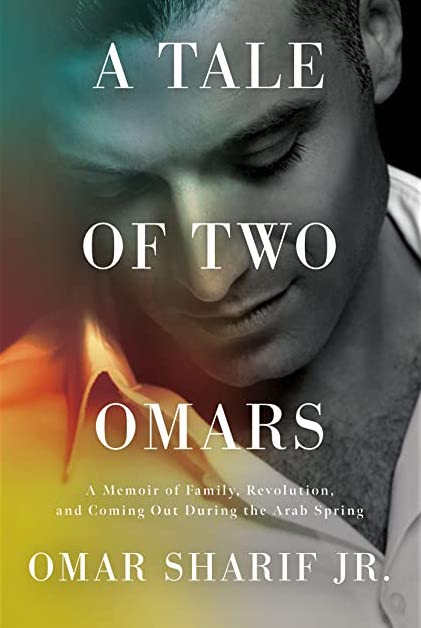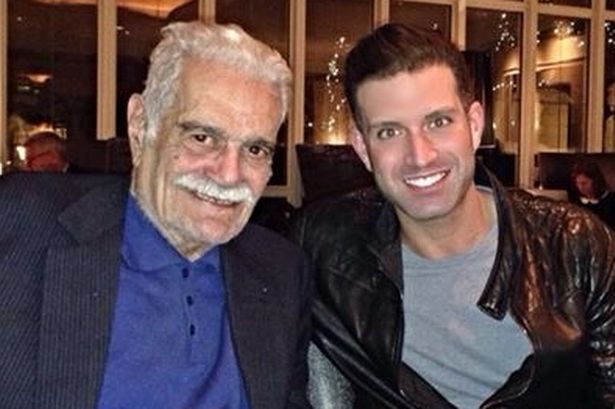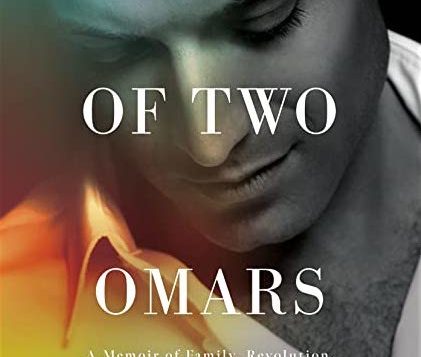 A Memoir of Family, Revolution, and Coming Out During the Arab Spring
A Memoir of Family, Revolution, and Coming Out During the Arab Spring
by Omar Sharif Jr.
Counterpoint Press. 224 pages, $26.
THE GRANDSON and namesake of actor Omar Sharif—who had starring roles in Lawrence of Arabia, Doctor Zhivago, and Funny Girl—Omar Sharif Jr. decided to come out publicly as gay, in The Advocate (March 16, 2012), following the Arab Spring. Having deep roots in Egypt, he expected some amount of blowback but was surprised by the vitriol of the haters who pounced on him online and in print. He had meant to beg his fellow countrymen for some measure of tolerance and grace, but that is not what he received.
As happens in so many memoirs by gay men, Sharif was bullied as a child. His parents were divorced and he was shuttled from home to home when he was young, from Canada to the Middle East, wherever his family members lived. Still, he came of age in what most would consider a comfortable life. His mother’s parents, Jewish Holocaust survivors, delighted in Sharif’s presence and helped raise him starting when he was four. They saw him as a living testament against the Nazis. He was their future, and when he was with them, he never wanted for attention or love.
Close to both pairs of grandparents, Omar Jr. had a special bond with his father’s father, who loomed large in Sharif’s life. The elder Sharif was generous with both wisdom and time, and he was gregarious and loud. Young Omar recalls dinner parties at which it seemed as if he were being prepped for a world that he didn’t yet understand as his grandfather regaled friends and colleagues with stories of his life and career. It all seemed so cosmopolitan and joie de vivre. What Omar learned from his paternal grandfather was formative, but he’s careful to note that much of his sense of self came from his Jewish side. He spent much of his early life with his maternal grandparents, hearing their stories and soaking up their unconditional love. No doubt his adoration for his grandfather Sharif gave him patience when the elder man began to suffer from the effects of Alzheimer’s, and young Sharif seemed to be the one person who could skillfully manage him.

Throughout this time, Sharif had been trying to conceal his gayness from some family members. He did ultimately tell his mother and learned that his grandfather knew but apparently didn’t care. Sharif felt strongly that his father should remain innocent of the truth for as long as possible, fearing not just his father’s disappointment but a backlash in Egypt. Sharif kept one foot in North America and the other hopping around Egypt, Israel, and Europe, and he had family on both continents.
Once he stopped hiding his sexuality and allowed certain friends and family to know, being gay actually furthered Sharif’s career in finance. He writes about accidentally stumbling into a job opportunity and bluffing his way through to the end of the process before being hired as an assistant to an unnamed sheikh who turned out to be a sexual predator. The sheikh, it seemed, specifically wanted a gay employee. In harrowing prose, Sharif describes his months with the sheikh, which were filled with shock, fear, assault, and escape from a man who threatened his life.
It may be difficult to believe that there could be more to come after that adventure, but there is. Sharif winds down quickly, however, bringing us up to date on his activism and the essay he wrote for a national magazine, circling back to the story that opened this book—the act of coming out that led to threats on his life, even as he tried to honor his dead grandfather. Despite that dismal beginning and a bit of bumpiness in its middle, A Tale of Two Omars comes around and ends in a way that will leave readers wrung out but satisfied.
____________________________________________________






